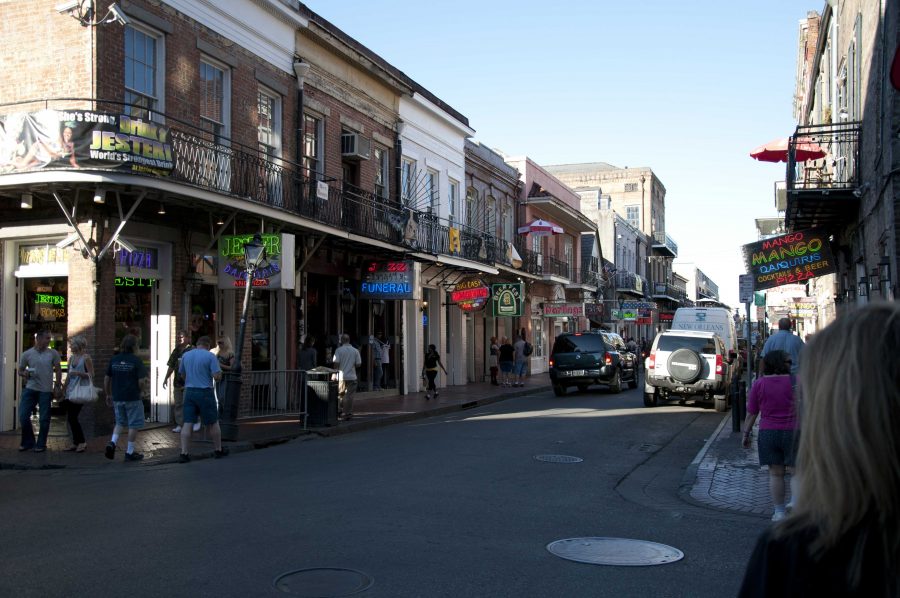By Jessica Mannino
Preparing for my Global Outreach project has revitalized in me an appreciation for the personal experience of service. Prior to this formative experience, there had never been a reward more gratifying to me than the affirmative look from an authority figure or family member when I had impressed them.
Talk about my abstract accomplishments gets recycled around my family so many times over that I have gone from “doing service” to representing an moral paradigm for all my cousins. Perhaps they are easily impressed, but it sure feels good to be, at the very least, a seemingly well-rounded individual.
High school has fostered this idea since I was freshman, primed for four years worth of resume motivated pursuits. With every activity accounted for, every good deed rewarded, and most paradoxically, every service undertaking incentivized, it has become almost impossible to rid myself of this operant conditioning.
This idea resonated deeply with Alex Rainone FCRH ’16. As a member of the executive board of Global Outreach, her perspective of service has been greatly altered during her time at Fordham. “I know in high school when I did service, it was never for my own purposes, it was always for the purpose of either graduation credits or doing it through a club, or things like that,” she reflected.
“After entering into Global Outreach, I started to see that before our projects, during our projects, and after our projects, it is all part of the solidarity mission,” Rainone offered. “Social justice, or being aware of what issues are going on, is just as much a part of service as is interacting with the people on the projects.”
Global Outreach is a student-led program that facilitates short-term cultural immersion experiences for all members of the Fordham University community. For the first time in my Fordham career, I recently decided to apply for a Global Outreach project, and was chosen to participate in the New Orleans project.
This project will take place over the duration of May 18-28, and though the itinerary is to remain ambiguous, I am aware at the very least that we will be working with a foundation called Project Lazarus.
Before entering my Global Outreach community, I used colloquial terms and abridged definitions of what it was I was going to do in New Orleans. The word service seemed sufficient in describing my motives, and the verb helping seemed sufficient in describing my intentions.
Though it was by no means my only motive, telling people I was doing good impressed them. It made me feel good about myself — like I was doing something with my time that deserved the sought-after eyebrow raise. My team project leader, junior Anthony Golio, attempted to revamp our team’s perception of service.
Instead of mindlessly using the aforementioned colloquial terms, he has suggested that we begin focusing more on the four pillars when discussing the trip: community, solidarity, spirituality and simple living.
We also read a speech, “To Hell With Good Intentions,” which shattered all of my previous conceptions of what it means to do service. It robbed community service of its facade, and debunked the typical association of service and selflessness. Service, in this light, was illuminated as greed couched in favors.
It reads, “The idea that every American has something to give, and at all times may, can and should give it, explains why it occurred to students that they could help Mexican peasants ‘develop’ by spending a few months in their villages.”
This polarizing statement left me in a moral paralysis. I, along with my team, was left to grapple with the unconscious joy service brought me in simply self-identifying as a volunteer. I had a revelation that there was an undertone of selfishness lining every seemingly selfless endeavor.
And why was this realization so prevalent? Perhaps it was because earlier that day, prior to reading that article, I had gotten a call from my grandma. Her comment of choice to cap off the conversation struck me deeply, though she was unaware she had hit this cord within me. “We’re so proud of you, going out to help others in need.”
For the first time, I did not bask in the affirmation. I mulled over it, hard. I came to realize that my family was wrong. I was not going to “help,” nor did I truly need any inkling of pride to feel good about what I was doing.
Claire Cumberland, a previous participant, leader, and current chaperone of GO! New Orleans and assistant administrator at the Global Outreach, has grappled with the same verb stigma. “I think the word that I have primarily used through Global Outreach is immersion, because it’s super important to remember that you are putting yourself in someone else’s culture, and remembering that you are the outsider,” Cumberland proposes.
Avery Chung, FCRH ’15, a previous participant of a GO! India project, realized upon returning the importance of allowing the people affect her as much as she hoped to have effected them. Her realization that she could not “change the world,” similar to my own, has been both an unsettling and humbling revelatory moment in this preparatory stage of GO.
I am going to New Orleans in search of a personally immersive experience. I have rid my vocabulary of flowery verbs, like help or give. Assuming I was going to help those in need established a mental hierarchy. When in fact, above all, I anticipate it will be them helping me.
Jessica Mannino, FCRH ’18, is a communication and media studies and history major from Somers, Connecticut.









































































































































































































